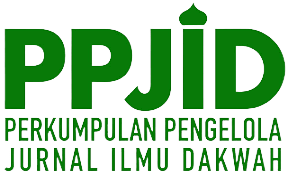Post-traumatic Effects in Survivors of Childhood Sexual Abuse: A Study Literature
DOI:
https://doi.org/10.18196/jicc.v3i1.51Keywords:
Survivors of Childhood Sexual Abuse, Trauma, Cognitive Distortion, Emotion Control, Self-Drive ControlAbstract
Childhood sexual abuse can result in long-term effects that remain in the survivors to confront and encounter continually. This study aimed to examine behavioral indicators that indicate trauma, which is one of the long-term effects of child sexual violence against children. The study used a literature study technique. There were three behavioral indications developed as long-term consequences of trauma endured by survivors of child sexual abuse. The first indicator was cognitive distortions characterized by self-blame, self-criticism, and a sense of worthlessness. Then, concerns regarding emotional regulation, which present persistent feelings of anxiety or sadness, can appear as the second implication. The last behavioral indication was difficulties regarding the ability to resist impulsive urges, evidently via the engagement in substance misuse and the development of deviant sexual conduct.
References
Agustina, Dewi. (2022, January 28). 3 Pelaku Kekerasan Seksual terhadap Santriwati di Magelang Terancam Hukuman 12 Tahun Penjara. Tribunnews.com. https://www.tribunnews.com/regional/2022/01/14/3-pelaku-kekerasan-seksual-terhadap-santriwati-di-magelang-terancam-hukuman-12-tahun-penjara
American Psychiatric Association. (1994). DSM-IV: Diagnostic and Statistical Manual for Mental Disorders (4th ed).
Chung, Man Cheung., & Shakra, Mudar. (2020) The association between trauma centrality and post-traumatic stress among Syrian refugees: The impact of cognitive distortions and trauma-coping self-efficacy, J Interpers Violence, 37(3–4), 1852–1877. DOI: 10.1177/0886260520926311.
Kementerian Pemberdayaan Perempuan dan Perlindungan Anak. (2022). SIMFONI-PPA.
Komnas Perempuan. (2021). Catatan Kekerasan Terhadap Perempuan Tahun 2020: Perempuan Dalam Himpitan Pandemi: Lonjakan Kekerasan Seksual, Kekerasan Siber, Perkawinan Anak, dan Keterbatasan Penanganan di Tengah Covid-19. https://drive.google.com/file/d/1M6lMRSjq- JzQwiYkadJ60K_G7CIoXNoF/view
Lahav, Yael et al. (2019). Post-traumatic growth, dissociation, and sexual revictimization in female childhood sexual abuse survivors. Child Maltreat, 25(1), 97–105. DOI: 10.1177/1077559519856102.
Lev-Wiesel, Rachel et al. (2009). Childhood sexual abuse as a predictor of birth-related post-traumatic stress and postpartum post-traumatic stress. Child Abuse & Neglect the International Journal, 33(12), 877-887. DOI: 10.1016/j.chiabu.2009.05.004.
Lev-Wiesel, Rachel. (2015). Childhood sexual abuse. Trauma & Treatment: Journal of Trauma & Treatment, 4(4), 2-7. DOI: 10.4172/2167-1222.s4-016.
Maheshwari, Kirti., & Chadha, Yukta. (2021). Correlation study between personality traits and cognitive distortions. The International Journal of Indian Psychology, 9(1), 421–441, DOI: 10.25215/0901.044.
Molnar, Beth E., Buka, Stephen, L., & Kessler, Ronald C. (2001). Child sexual abuse and subsequent psychopathology: Results from the national comorbidity survey. Am J Public Health, 91(5). 753–760. DOI: 10.2105/AJPH.91.5.753.
Mukhoyyaroh, Tatik. (2019). Secure Attachment Dan Perilaku Asertif Pada Remaja Penyintas Sexual Abuse. Naskah Prosiding Temilnas XI IPPI Malang, 657-668. https://psychologyforum.umm.ac.id/files/file/Prosiding%20IPPI%202019/70_%20Naskah%20657-668.pdf
NCTSN. (2023, January 31). Sexual Abuse. The National Child Traumatic Stress Network. https://www.nctsn.org/what-is-child-trauma/trauma-types/sexual-abuse
Noviana, Ivo. (2015). Kekerasan Seksual Terhadap Anak: Dampak Dan Penanganannya. Sosio Informa, 1(1), 13–28. https://www.neliti.com/id/publications/52819/kekerasan-seksual-terhadap-anak-dampak-dan-penanganannya#cite
Rossiter, Amy et al. (2015). Childhood trauma levels in individuals attending adult mental health services: An evaluation of clinical records and structured measurement of childhood trauma. Child Abuse & Neglect The International Journal, 44, 36-45. https://doi.org/10.1016/j.chiabu.2015.01.001
Saat, Geshina Mat. (2011). Psychological assessment of trauma survivors. Jurnal Persatuan Kaunselor Pendidikan Malaysia, 1, 36–45. https://www.researchgate.net/publication/263296427_PSYCHOLOGICAL_ASSESSMENT_OF_TRAUMA_PENYINTASS
Sigurdardottir, S., & Halldorsdottir, S. (2018). Screaming body and silent healthcare providers: A case study with childhood sexual abuse survivors. International Journal of Environmental Research and Public Health 2018, 15(1), 1-17. DOI 10.3390/IJERPH15010094.
Sinanan, Allison N. (2015). Trauma and treatment of child sexual abuse. Trauma & Treatment: Journal of Trauma & Treatment, S4: 024, 1-5. DOI: 10.4172/2167-1222.s4-024.
Whetten, Kathryn et al. (2006). Prevalence of childhood sexual abuse and physical trauma in an HIV-positive sample from the deep south. Am J Public Health, 96(6), 1028–1030. DOI: 10.2105/AJPH.2005.063263.
Downloads
Published
How to Cite
License
Copyright (c) 2024 Mahatma Acintya Dhyatmika, Hermahayu, Rayinda Faizah

This work is licensed under a Creative Commons Attribution-ShareAlike 4.0 International License.
Journal of Islamic Communication and Counseling is currently licensed under a Creative Commons Attribution-ShareAlike 4.0 International (CC BY-SA 4.0)





